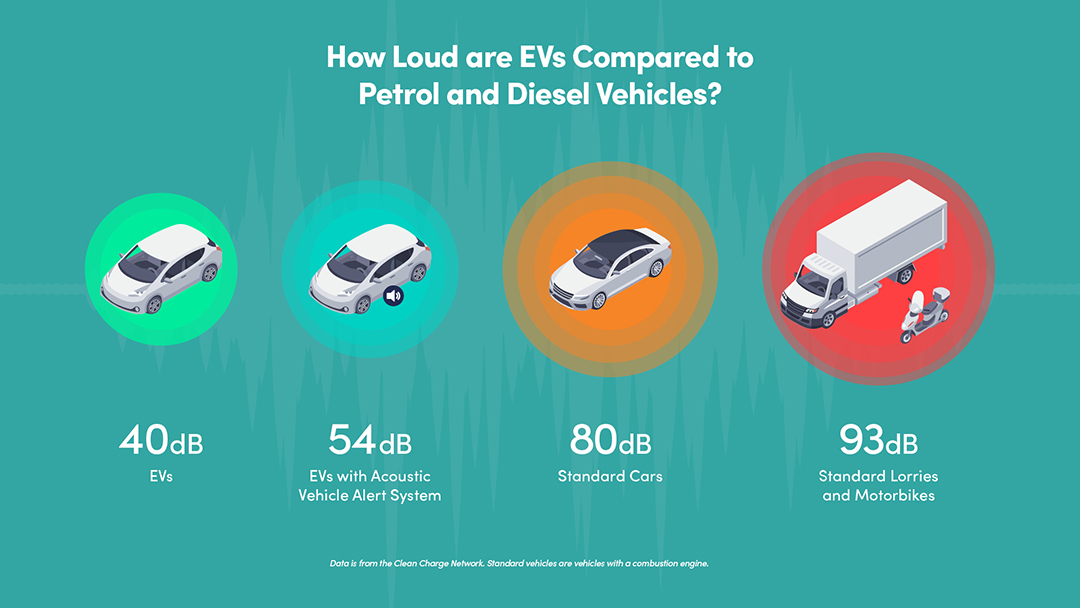Go into a city or large town anywhere in the world and you’ll hear the steady hum of traffic. Engines roaring, horns beeping and brakes screeching. But have you ever thought about what this could be doing to you?
Data from the UK Health Security Agency indicates that noise pollution from traffic now affects 40% of the UK population - approximately 26.8 million people. Long-term exposure to noise pollution can have significant detrimental effects on both mental and physical health. According to the UK Parliament, “130,000 healthy life years are lost from noise pollution each year in Britain.”
The ongoing shift to electric vehicles is expected to improve air quality and tackle the issue of noise pollution.
In 2022, the UN reported that London was among the louder cities in Europe, noting that residents often experience average noise levels of 86 decibels, which exceeds the World Health Organization's (WHO) recommended maximum of 53 decibels.
Slough and Wigan are the second and third noisiest cities in the UK. Southampton and Oxford cracked the top 10, though significantly lower than the top three.
Derby and Kingston-upon-Hull are the UK’s cities with the lowest daily noise pollution levels from traffic.
Considering nighttime exposure (traffic noise over 50dB), London sees a 70% increase in the number of people affected, rising to 2.2 million. Greater Manchester also shows a significant increase, with over 650,000 people affected at night.
Electric vehicles are quiet. So quiet, it’s becoming mandatory in many areas around the world that they produce a sound to alert pedestrians to them.
In the EU, this is being introduced in July 2021. EVs and hybrids must make a noise above 56dB when a vehicle is 12mph and under using an acoustic vehicle alert system (AVAS).
EVs are much quieter compared to petrol and diesel as they don’t have a combustion engine. This means the only sound they generate is from the tyres on the road and the wind resistance.

With the UK's goal to be net-zero by 2050, and the ban on new petrol and diesel models in 2035, a significant increase in EVs on the roads is expected soon, leading to a substantial decrease in noise pollution.
According to the World Health Organisation, noise is the second most harmful environmental factor to your health after air pollution. The leading contributor to noise pollution in the UK is traffic.
Long-term exposure to noise pollution over 55dB can impact your health in many unexpected ways. These health issues include:
Exposure to noise pollution over 40dB at night can also be hugely detrimental to health. Sleep disturbance can exacerbate the above issues whilst also causing other issues like weight gain, diabetes and types of cancer.
We spoke to Pamela Barbato from Action Net Zero who gave us her insight into noise pollution and EVs:
“Research shows that the link between noise pollution levels and our emotions is clear. Neurologically we are likely to become more stressed or annoyed if the noises are beyond our own control like vehicle noise in congested urban areas where people live and work. If our personal space is compromised, for a prolonged period, it can affect our mental health.”
“Clean Air Zones will not only help with air pollution but also noise pollution too by providing incentives to transition to EVs, whose noise levels are less than half of petrol and diesel when driven below 30 mph. EVs can also provide a more tranquil environment to travel in, especially when navigating the rush hour - we all know how stressful some car journeys can be!”
In conclusion, the transition to electric vehicles in the UK is about more than just reducing carbon emissions; it's a crucial step towards tackling the often-overlooked issue of noise pollution. With the right policies, innovations, and urban planning strategies, the UK can look forward to quieter, healthier, and more sustainable cities.
As we continue to embrace electric vehicles and implement effective noise reduction measures, the future of urban living in the UK appears promising. The combined efforts of government, industry, and communities will be key in realising this quieter, cleaner vision for our cities.